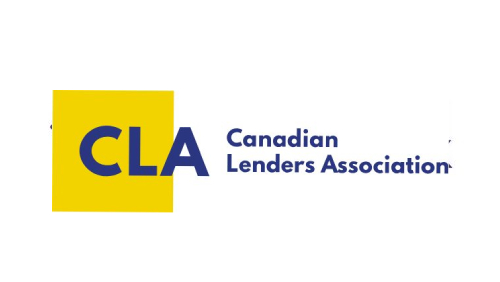Canada Backing Crypto-Backed Lending?
Abstract: It seems to be a well-worn phrase, that to compete globally, Canada must modernize its laws, define custodial standards, and provide clarity on collateral enforcement. Crypto-backed lending offers a powerful new tool for unlocking capital without liquidating digital assets, yet Canada lags due to legal uncertainty around the enforceability of crypto-assets as collateral. Despite growing adoption, Canadian lenders face regulatory gaps that prevent them from confidently registering or perfecting security interests in crypto under existing PPSA and CCQ frameworks. The Canadian Lenders Association (CLA), through its quarterly Crypto Finance Roundtable has been leading efforts to address these issues and build a compliant, scalable path forward.
Canada’s financial sector is facing a defining question: will we regulate crypto-collateralized lending proactively, or will we continue to watch from the sidelines while global leaders set the rules?
Across the U.S. and Europe, institutional players—from Coinbase and Anchorage Digital to Nexo—are enabling secure, compliant lending against digital assets like Bitcoin and Ethereum. In Canada, however, lenders remain trapped in a legal Neverland. Despite growing consumer interest, there is no unified legal recognition of crypto-assets as enforceable collateral under provincial law. This is a missed opportunity for innovation, capital access, and competitiveness.
The Canadian Lenders Association (CLA) has been at the forefront of this issue. We have host a quarterly Crypto Finance Roundtable, convening stakeholders across our 300 plus member base. These meetings have been instrumental in shaping our national understanding of crypto as a functional, not just speculative, asset class.
To support this work, the CLA published the Guide to Crypto-Backed Lending—a first-of-its-kind document that lays out the practical and legal challenges of using crypto as collateral in Canada. The guide is clear: the legal regime governing secured transactions is currently ill-equipped to handle crypto-assets. Neither the provincial PPSAs nor Quebec’s CCQ provide certainty on perfection, priority, or enforceability.
This absence of legal clarity effectively sidelines Canadian lenders—who cannot confidently register, monitor, or enforce rights over crypto-collateral, even when both borrower and lender agree on terms.
Let’s look at where the action is globally:
- Coinbase now offers institutional clients crypto-backed credit lines, with custodial protections, collateral monitoring, and compliance frameworks.
- Anchorage Digital, as a federally chartered crypto bank in the U.S., offers fully regulated loans secured by digital assets.
- Nexo, based in Europe, provides both retail and institutional crypto credit lines, complete with real-time audits and insurance protections.
- Ledn, a Canadian standout, is FINTRAC-registered and offers Bitcoin-backed loans and a first-of-its-kind Bitcoin mortgage product. But despite being based in Toronto, Ledn cannot scale within its home country due to the lack of statutory support for crypto-collateral.
Oh Canada
According to the CLA Guide, crypto-backed lending in Canada is challenged by:
- Uncertain categorization of crypto-assets under provincial secured transaction laws.
- No perfection mechanisms equivalent to “control” (as exist for investment securities), which leaves crypto security interests vulnerable.
- Lack of priority clarity, making it unclear if a registered interest in crypto collateral would stand in a court of law.
- Custody limitations, since no Canadian regime defines who can hold crypto-assets securely for loan transactions.
These gaps mean lenders must rely entirely on contractual workarounds and manual due diligence—adding friction, cost, and legal risk.
Must Do—Now
If Canada wants to be competitive in the global crypto-finance economy, we must:
- Amend the PPSAs and CCQ to explicitly recognize crypto-assets as enforceable collateral.
- Define clear paths to perfection—potentially by introducing a digital “control” regime akin to the Securities Transfer Act.
- Allow for digital custodianship standards, to define who can securely hold and safeguard crypto assets on behalf of lenders.
- Encourage regulators to expand sandbox frameworks, so that platforms like Coinbase Canada, Ledn and APX Lending can scale with confidence.
- Build KYC/KYP compliance into the regulatory core, in line with FINTRAC guidance, so AML and investor protections are not compromised.
The CLA believes that crypto-backed lending is not a fringe finance tool. From small business liquidity to mortgage innovation, this form of secured lending can reshape how Canadians access financial tools—without requiring them to sell their digital assets.
But this promise will remain out of reach unless we address the legal vacuum. It is time for lawmakers, regulators, and financial institutions to act—together.
With the right legal scaffolding, Canada can become a global leader in responsible crypto-backed lending. Without it, we risk exporting both innovation and opportunity to jurisdictions that move faster and think bigger.
Here are five key insights:
-
Canada lacks legal clarity: Current secured lending laws (PPSAs and the CCQ) do not explicitly recognize crypto-assets as collateral, leaving lenders without a clear path to enforce or perfect security interests.
-
Global models offer tested frameworks: Platforms like Coinbase, Nexo, and Anchorage Digital have successfully integrated crypto-backed lending into regulated financial systems, showing that scalable, compliant models exist.
-
Ledn is proof of potential—and limitation: Toronto-based Ledn has pioneered crypto-backed products in Canada but cannot fully scale without updated laws to support collateral registration, perfection, and priority.
-
CLA is leading national dialogue: Through over four years of its Crypto Finance Roundtable with resources such as the Guide to Crypto-Backed Lending, the Canadian Lenders Association is driving industry awareness and policy engagement.
-
Action is urgent and achievable: Amendments to existing collateral laws, defined custodianship rules, and regulatory sandboxes can unlock safe and innovative crypto-lending in Canada—if governments move now.
Sign up for the CLA Finance Summit Series




